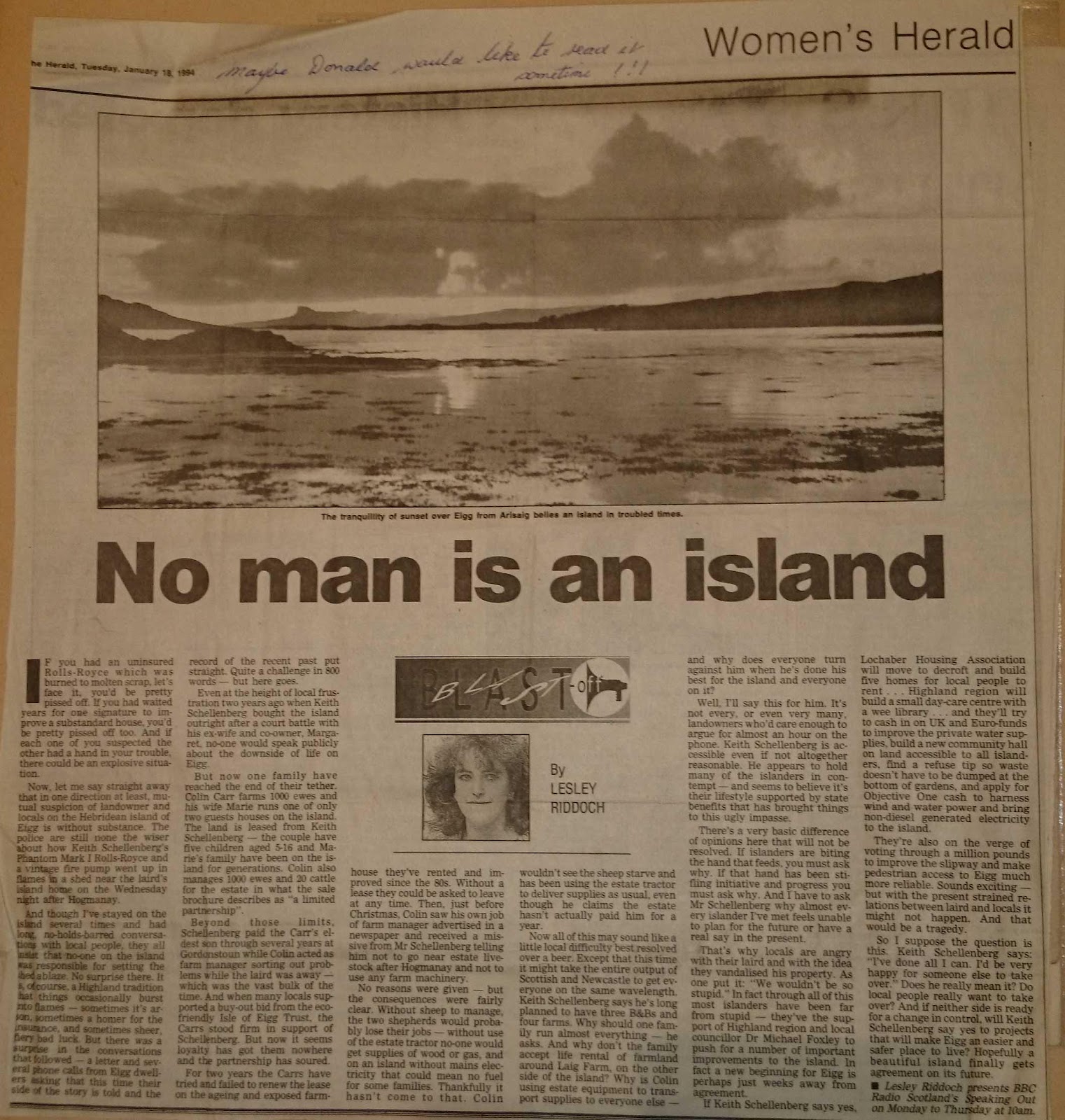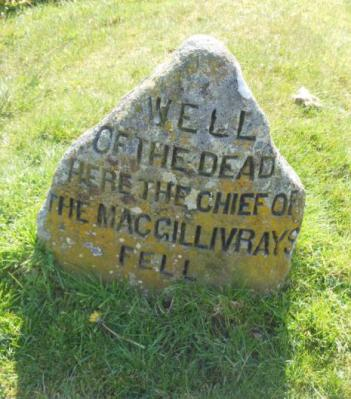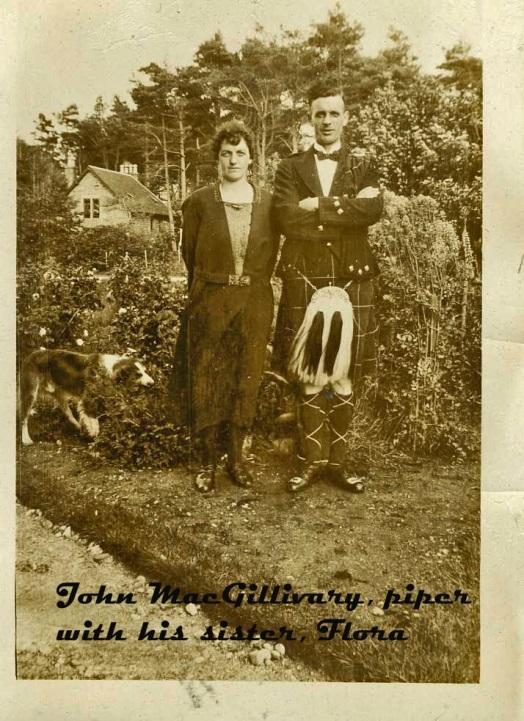“No Man is an Island” by Lesley Riddoch January 18, 1994, The Herald (Scottish newspaper)
In Lesley’s article, she goes straight to the point and writes about Keith Schellenberg’s Phantom Mark I Rolls Royce that went up in flames. No reason or ‘culprit’ was ever found (despite a police investigation); although the newspaper articles seem to suggest this was an act of one of the ‘incomers’ to the island. They have become displeased with what they perceived to be Schellenberg’s mismanagement of the island. Of course, this is no more than a rumour.
It is not difficult to imagine the islanders resentment at him playing at being ‘the Lord of the Isle’, transporting his Rolls Royce to the island, and parking it outside the local café. As they say, pride comes before a fall.

The article also discusses the dissatisfaction with Schellenberg’s management of the island, or lack of management. The farmer, Colin Carr, and his wife, Marie Carr (who runs a guesthouse at Kildonnan) have express the same sentiment. Amongst the problems mentioned was Schellenberg’s reluctance to renew the lease of Kildonnan Farm. The other islanders also had insecure tenancies.
In other words, this was all in the proud tradition of ‘Laird and Serf’; they treat tenants as mere chattel, and equate men with livestock, something that has been enshrined in Scottish Law for centuries. It was a long held tradition that religious dissenters and unwanted tenants could be transported to the ‘colonies’, or more specifically, America.
Thus, according to the article, “Laird” Schellenberg treated Colin Carr as if he was no more than a serf; this was despite the fact that Colin and Marie had invested considerable efforts in improving Kildonnan Farm since the 80s. The article points out that this was not just about the Carr family; this was about the fact that the non-renewal of the farm lease would also negatively impact other islanders in various ways. The article also refers to Schellenberg’s complaints.
Anyone who is interested in soccer knows that managers that sew conflicts and don’t produce results will be sacked.
The article also points out other factors that have been reiterated elsewhere in the right-wing press. Lesley writes: “He appears to hold many of the islanders in contempt. He also seems to believe it’s their lifestyle supported by state benefits that has brought things to this ugly impasse.”
Back-to-the-land movement
In the 1960s and later, there was a so-called back-to-the-land movement. This concerned ideas of a greater degree of self-sufficiency, autonomy, and local community than found in a prevailing industrial or post-industrial way of life. Amongst the social groups that were involved were counterculture hippies. More specifically, many so-called hippies moved from urban to rural areas in the 1960s, 1970s, and later. The right-wing press were often actively engaged in denigrating this group of people. In addition, due to agricultural innovations, the rural communities in Scotland became depopulated.
Fantastically, during the post-war period, crofters and farmers on Eigg were still using horse-driven ploughs and doing haymaking by hand, even when such practices had long been discarded on the mainland. In other words, this was unsustainable in the long run. Some of the few crofters left on Eigg were still using the old methods in the latter half of the 20th century and beginning of the 20th century. Perhaps some of them resented ‘the incomers’. This is understandable – as the question was “what’s in it for me?”, regarding the future plans for Eigg.
At the same time, autocratic owners, such as Schellenberg, were still rooted in the past, where they believed that purchase of an island gave them full rights to do what they like – like some kind of feudal lord.
Unlike some of the other articles about the disputes on Eigg, Lesley Riddoch seems to give a balanced view. She asks: “And I have to ask Mr. Schellenberg why almost every islander I’ve met feels unable to plan for the future or have a real say in the present.”



